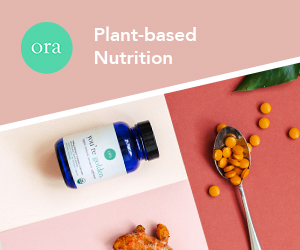At the start of 2017, I took a peek into my kitchen and decided to make some changes toward a more eco-friendly existence. It’s still a work in progress, but here are my tips for creating a greener kitchen:
.jpg) Replace plastic. Plastic puts a huge strain on our environment, especially marine life. When you can, choose materials like wood, steel, aluminum, or glass. These materials are more durable and easier to recycle or dispose of later. If possible, replace your current plastic items before they break. That way you can donate them instead of putting them in a landfill. Some easy options pictured above: stainless steel measuring cups and spoons, a wooden dish brush, and bamboo utensils. All under $10.
Replace plastic. Plastic puts a huge strain on our environment, especially marine life. When you can, choose materials like wood, steel, aluminum, or glass. These materials are more durable and easier to recycle or dispose of later. If possible, replace your current plastic items before they break. That way you can donate them instead of putting them in a landfill. Some easy options pictured above: stainless steel measuring cups and spoons, a wooden dish brush, and bamboo utensils. All under $10.
Eliminate single-use paper products. Paper napkins, paper towels, paper cups, paper plates. They’re convenient, but they’re not necessary. Recycling centers won’t accept paper products if there’s food stuck to it, so it’s a huge waste. I’m embarrassed to admit that I’ve only recently quit my paper towel addiction. I purchased some cute cloth napkins to ease the transition, and I love them!
Invest in high-quality cookware. Stainless steel or cast iron are great options. If you care for them properly, they can last you a lifetime. Plus, they won’t release toxins into your food like teflon or other non-stick coatings. My personal favorite is cast iron!
Reduce food waste. Plan out your meals in advanced, and take inventory of your fridge/cupboards regularly. I can’t tell you how many times I’ve purchased the same thing twice or let things go bad because I was too lazy to look through the fridge. It’s something I’m really trying to work on!
Compost food waste. I wish I’d started this years ago! It’s really not that difficult, especially in Portland with curbside compost pick-up. We keep our compost in the freezer so there’s no issue with smell, and take it out every two weeks. I’m amazed at how much less goes in the trash now! Coffee grounds, tea leaves, veggie peels/scraps, etc. It all adds up! Another benefit is not having a smelly trash. If you don’t have curbside pick-up, you can also find a community compost, or take scraps to the Farmer’s Market compost.
Consider your food choices. The way food is grown, transported, and packaged impacts the environment. Consider purchasing local, organic, and fresh food. Reducing the amount of animal products in your diet is the number one thing you can do to reduce climate change, which is part of why I love eating vegan! If going vegan sounds daunting, try a “meatless monday” — any bit counts!
Remember, you don’t have to do everything all at once. Implementing just one of these things can make an impact, and it might even save you some money in the long run. Do you have any tips for a more eco-friendly kitchen?






